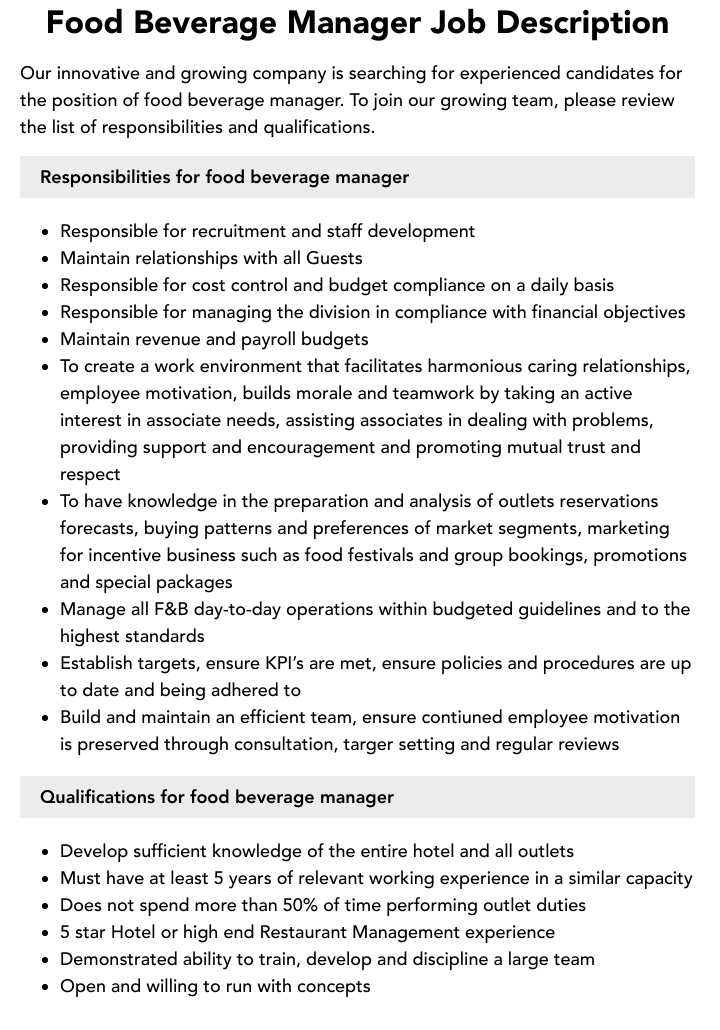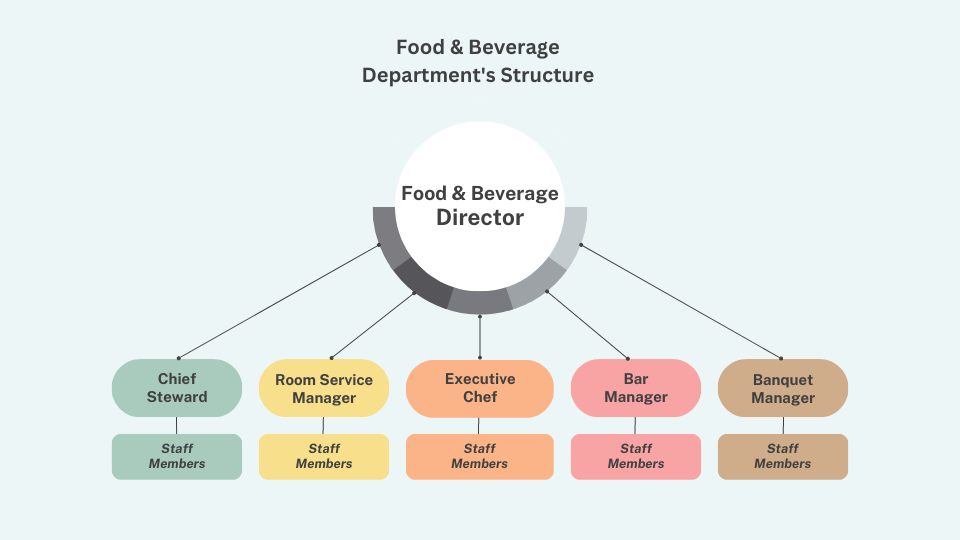Alright, here’s the lowdown on what I learned about being a Food and Beverage Manager – straight from my trenches.
So, I kicked things off shadowing our F&B Manager, Mark. First thing I noticed? Dude’s phone never stops buzzing. Turns out, half the job is putting out fires before they become bonfires. A supplier messed up an order? Chef’s got a tantrum because the new knives are dull? Guests complaining about the music being too loud? Mark was all over it. My first real task? Inventory. Sounded boring, I know. But it was eye-opening. We’re talking about making sure we knew exactly how much booze, food, and even napkins we had. We went through every storage room, checked dates, and logged everything into the system. The goal? Minimize waste and prevent running out of key items during a busy weekend. I spent a whole afternoon just counting bottles of wine – felt like a sommelier in training (but without the fancy knowledge!).

Next up, Mark roped me into menu planning. I thought it was all about picking fancy dishes. Nah. It was about cost analysis, seasonality, and what the kitchen staff could actually handle. We brainstormed ideas, but Mark constantly asked: “Can we source this locally?” “What’s the profit margin?” “Will Chef be able to prep this in time for dinner service?” It was a real lesson in balancing creativity with practicality. We even did a little taste-testing… perks of the job, right? (Though my stomach was protesting by the end!). I actually got to suggest a new appetizer – spicy shrimp tacos – and it made it onto the menu! Proud moment.
Then came the dreaded part: dealing with customer complaints. Someone found a hair in their soup (yikes!). Another guest was furious because their steak wasn’t cooked to their liking. Mark showed me how to handle these situations calmly and professionally. The key? Listen, apologize sincerely, and offer a solution (comp the meal, offer a discount, etc.). It’s not always about being “right,” but about making the guest feel heard and valued. Honestly, it’s a skill I think everyone should have, not just F&B managers.
One of the more long-term tasks I got involved with was policy creation. Mark was working on updating the employee handbook. He wanted to clarify the rules around things like dress code, attendance, and handling cash. I helped him research best practices from other restaurants and draft the new policies. It was surprisingly interesting – like writing the rules for a mini-society. And you realize how much thought has to go into making sure everyone is treated fairly and knows what’s expected of them.
Oh, and there was the whole compliance thing. Food safety regulations are no joke. We had to make sure everyone on staff was properly trained in handling food safely, washing hands, and preventing cross-contamination. Mark walked me through the health inspections and how to prepare for them. He emphasized the importance of documentation – keeping records of temperature checks, cleaning schedules, and staff training. It’s tedious, but essential to avoid getting shut down.
Last but not least, I got a glimpse into the financial side of things. Mark showed me how to prepare reports on the restaurant’s performance. We looked at revenue, expenses, and profit margins. He explained how to identify trends, forecast demand, and make adjustments to the menu or staffing levels to improve profitability. It was like running a mini-business within the larger hotel.
Here’s a quick breakdown of the main things I learned:
- Problem-solving: Being quick on your feet and finding solutions to unexpected issues.
- Inventory Management: Knowing what you have and preventing shortages.
- Menu Planning: Balancing creativity with cost and practicality.
- Customer Service: Handling complaints with grace and professionalism.
- Policy Creation: Setting clear expectations and ensuring fair treatment.
- Compliance: Following food safety regulations to avoid health violations.
- Financial Management: Tracking revenue, expenses, and profit margins.
Overall, my time shadowing Mark was a real eye-opener. Being a Food and Beverage Manager is definitely not a glamorous job. It’s a lot of hard work, long hours, and dealing with constant pressure. But it’s also incredibly rewarding. You get to create memorable experiences for guests, lead a team of passionate people, and contribute to the success of a thriving business.













